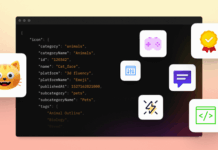JavaScript is the language of interactive web pages. No surprise it is frequently chosen by startups to create an interesting web solution, a mobile app, or a prototype of a more complex project. JS dominates the front-end development as it is continuously enhancing and quite fast.
In this overview, we have compiled the reasons for JavaScript popularity. If you are considering the possibility of launching a successful startup, think of JS as a coding language option. And here is why:

1) Universal possibilities
JS is used nowadays not only for web development, but also for creating mobile apps, and desktop solutions. With this language, you can build components and widgets to be used in the solutions for the medical sphere, education, e-commerce, as well as chats, messengers, platforms for team cooperation, and so on.
Templates and modules written on JS are easily reused and updated, so be sure your code will never be too long. Besides, purchasing a JS library, you will have a set of useful elements at hand and suitable for any project.
2) Speed
This point can be observed twofold. First, JS codes are easy to maintain, and they are quite short. Especially if a JS library or a framework is applied. It means your app will not lose its performance indicators even with time.
Second, you will not spend extra time explaining your code to a newcomer developer in the company, as it will not be too long. Finally, there is one more benefit of utilizing similar codes for backend and frontend, which is a way to save a significant amount of time.
3) Vast ecosystem
With so many developers coding on JS, you are likely to find a solution to practically any issue online. This is extremely handy as developers don’t spend time on the basics, but put their efforts into designing more sophisticated parts of the project.
A well-developed community of programmers is used to coding on JavaScript, which means you will easily find new staff for your company when the first revenue appears, and you decide to scale.
4) Frameworks and libraries
We need to stop here for a while. The difference between the two is the following. When you have a house, you need to buy some furniture inside. That is what libraries provide a project with as IKEA does for a new house.
While a framework is like building a house with the help of some limited choice of modules or blocks. As for the coding, with libraries you are the king, so you decide when and where to call it, however with a framework applied, you can only insert your code in certain places.
Frameworks like Angular, Vue, and React are on everyone’s lips. They have been on the list of required competencies for new developers for quite some time already. Unfortunately, their popularity is more about hype and less about real help to the developers. Here’s what we can find in the reviews of experienced programmers:
- Frameworks give too much freedom, which leads to fundamental errors that are not always visible in the early stage of development.
- They use much of the memory.
- The more complex your app becomes, the harder it is to maintain the code.
- There is much of what is needed to be done by developers themselves or involving other third-party libraries.
On the contrary, there are a lot of useful libraries on the market, that can significantly facilitate the process of creating an app and provide the developers with all the necessary tools. Yet programmers keep being skeptical about them because they are not so greatly promoted.
In the situation, where a large company would hesitate on whether it is reasonable to invest in a new product and to spend time and resources on teaching the stuff, less well-known libraries may suit startups greatly. As a rule, there are not so many developers in startups, so there is no need to arrange training for a whole team. Startups are usually interested in saving time and are limited financially, so a library may come in handy for them. Some of them provide worthy solutions in the open-source.
Webix UI Library is one such solution. Surprisingly, there are still those who are hesitating about how reliable the library is when the company behind this project has been on the market for 13 years already. The library contains more than 100 widgets and complex SPA applications, as well as templates, Jet microframework, and UI Designer. The customers’ feedback proves the library is full, light, and responsive.
Besides, the updates happen regularly, and a loyal community is always there to help with any issue. The trial period allows getting used to the library, checking whether it has everything necessary, and making a final decision on purchasing it. Besides, the team offers remote help, which is also a service worth taking into consideration while launching a startup. Experts’ help will come in handy.
5) Fast recruiting
This point is the result of all the above-mentioned benefits. JS is relatively easy to learn. Besides, a developed community of admirers of this language guarantees you will find a programmer to compile your team. Another option here would be to find freelancers, as there are many of them dealing with JS.
And since JavaScript is suitable for both the backend and the frontend, you will not need extra people in your team, which leads to significant savings for a startup. Finally, when everything goes well, and you will need, for example, a web app additionally to your mobile app, the same JS components, libraries, packages can be used for that.
To sum up
Startups are always at risk of losing money and failing. The reasons for that can vary. A nice tool behind the development process will increase the chance of startups’ survival. JavaScript is a promising language with all the benefits mentioned above that can secure at least the technical part of a startup.
And with the current popularity of this language, the appearance of a new powerful competitor is unlikely. So choose JS, look for a suitable library, and let success attend you!


















